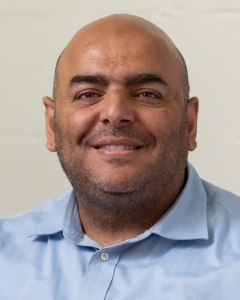 Tips for Small-Business Recovery
Tips for Small-Business Recovery
By Jalal Maqableh
Originally published in the Daily News-Record Shenandoah Business Journal
As a business adviser who is in contact with small-business owners on a daily basis, I work hard to apply what I study in my doctorate program about organizational leadership into my daily activities with entrepreneurs and business owners. When COVID-19 hit, I was, along with Small Business Development Center staff across the nation, among the first respondents to help small-business owners face the crisis. The hard work we have done to help the small-business sector to survive through COVID-19 inspired me to write my dissertation about small-business recovery after the COVID-19 crisis. During the time I spent on research for my dissertation, I found that besides the need to fulfill the academic requirement for my doctorate degree, it is very important to provide my perspective, as a business adviser, about recovery after the COVID-19 crisis to all stakeholders in the small-business sector.
It is important to focus on small-business recovery for many reasons. First, because about 45% of the U.S. economy relies on the small-business sector. Second, the small-business sector employs about 60 million people in the U.S. This is nearly half of the private sector workforce. And third, in the last 20 years, 65% of new jobs in the U.S. market were created by the small-business sector. Based on that, it is logical to say that the small-business sector recovery will be a recovery for the U.S. economy.
The COVID-19 pandemic is a crisis on all levels. But the economic side of this crisis is the one that has the greatest daily effect on people. Therefore, it is critical to the economy to help the business sector to stand again. The world economy, as well as the U.S. economy, are both accustomed to facing crises that hit a region or a sector. For instance, the U.S. faces many natural disasters like hurricanes. These crises have, in general, a specific time frame. A few days to a few weeks and then the main effect that caused the crisis is over. Then, an assessment for the damage starts in order to begin the recovery phase. Unlike these crises, the COVID-19 pandemic hit the whole world and its repercussions continue to affect all sectors. The COVID-19 pandemic has generated an economic crisis that has blown supply and demand at the same time. And the COVID-19 pandemic has not ended yet. This means it is early to start talking about recovery. In general, working on recovery starts when the main effect of the problem disappears. We can use science to explain this. For instance, in biology, when a virus hits the body, the body enforces a response mechanism to survive. As long as the virus is still attacking, the body works to respond to the problems that the virus causes. When the body defeats the virus, the recovery process starts. As the COVID-19 virus (the source of the pandemic) still exists, then, we are still in the response phase and seeking survival.
Tip No. 1
Do not push yourself and your business too far, you are not required to recover now. All that you need to do is to respond and survive.
Being heavily focused on your small business’ financial status is important for future sustainability after the crisis. There is nothing wrong with that. But putting all your focus on financials will lead to disabling other aspects that the business will be in at most need when starting the recovery process.
Tip No. 2
It is important to pay attention to all components of your business — people, operations, physical structure and information.
The key challenge that any crisis creates is the high level of uncertainty. Crises are unknown events; therefore, it is difficult to predict their consequences. In crisis times, information is the most valuable player in the game.
Tip No. 3
The way you gather and process the information of your business and the information about the surrounding environment will determine your ability to reduce uncertainty and consequently proceed with your business recovery.
It is important to understand that a business after a crisis becomes different from the one before the crisis. This is an essential idea that business owners need to understand to be able to proceed with the recovery. The transformation that the business goes through during the crisis makes it impossible for business owners to run the business in the old way.
Tip No. 4
The best recovery is the one that makes business owners understand their business better than in the past and lead them to master their business in totally new ways.
Business recovery is a process that needs business owners to focus on many elements. Each one plays a specific role in the recovery process.
This article is the first of a series of five articles that will cover the elements that are important for small-business recovery after the COVID-19 crisis. The recovery elements that will be covered in this series are financial recovery, physical recovery, psychological recovery and information recovery.
Originally from Jordan, Jalal Maqableh came to Harrisonburg in 2015 to pursue his doctoral degree. In 2017, he graduated with a master’s degree from the Center for Justice and Peacebuilding at Eastern Mennonite University. In the same year, he started his doctorate at the School of Strategic Leadership Studies at James Madison University. At the same time, he started to serve as a business adviser at the Shenandoah Valley Small Business Development Center. Jalal also teaches organizational behavior classes at the College of Business at JMU. Besides his affiliation with JMU as student, staff and faculty, Jalal serves on the board of directors of Fairfield Center and other advisory committees for the Harrisonburg Police Department and Harrisonburg City Public Schools.
Read more of Jalal’s bio HERE.

